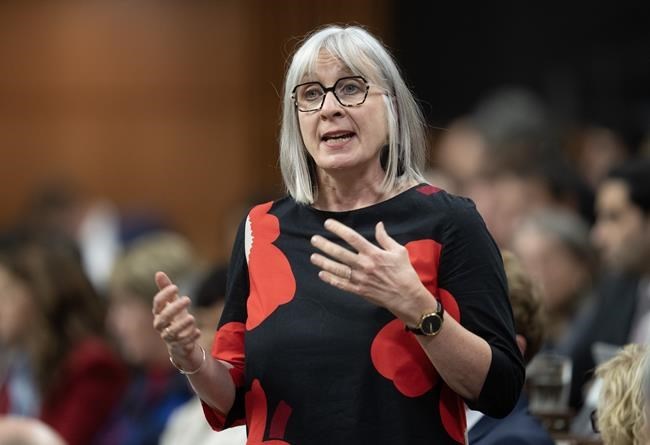OTTAWA — The current federal Liberal government tried to distance itself Tuesday from the Jean Chrétien-led one that reportedly conspired with Australia to weaken United Nations language on Indigenous Peoples in the early 2000s.
Newly released Australian cabinet documents from 2003 show the two countries worked together on putting forward a softer version of the UN Declaration on the Rights of Indigenous Peoples.
The declaration spells out Indigenous rights, including self-determination, language and cultural preservation, prohibits forced removal from lands or territories and requires states to consult with Indigenous Peoples.
The proposed changes from Australia and Canada would have removed references to restitution of land, cultural genocide and demilitarization, significantly diminishing the scope and potential impact of the final version.
The idea of a more state-friendly alternative text originated with Chrétien's Liberal government, the documents say, and was backed by Australia at the time.
Every Liberal government is different, Indigenous Services Minister Patty Hajdu told The Canadian Press, adding that every act of colonization and undermining Indigenous rights leaves a "stain" on the country.
"Indigenous, First Nations people deserve so much more than that, and that's what we are trying to do as a Liberal government," Hajdu said.
The documents, first disclosed by the Guardian newspaper, show the two governments worked in secret to weaken the declaration, while acknowledging their efforts would face stringent Indigenous opposition.
The records indicate that the goal of the exercise was to counter the original draft and prevent it from "attaining the status of customary international law."
"Our approach has been to only discuss the alternative text with those key states that appear to share our views and concerns," the documents say.
"Australia and Canada have approached the United States, New Zealand and Norway to invite them to participate in the Australia-Canada negotiations."
One cabinet memo from August 2002 said Canada saw Australia as its most promising partner in the endeavour, and that Canada was willing to commit "significant resources."
The actions of the two countries, which began in 2002, were likely to receive criticism from Indigenous groups for working in a "non-transparent, bilateral manner," the documents say.
The United Nations Declaration on the Rights of Indigenous Peoples was amended before it was adopted by the UN in 2007 —with Canada, Australia, New Zealand and the United States being the only countries to vote against it.
Australia's government endorsed the declaration in 2009; the following year, Stephen Harper's Conservative government endorsed it as an "aspirational document," rather than a legally binding one.
Prime Minister Justin Trudeau's Liberal government passed legislation in 2021 to bring the declaration into law,something Hajdu pointed out Tuesday after an announcement on the Eden Valley Reserve southwest of Calgary.
"We've taken a long leap away from those early thoughts of elected leaders of all stripes who looked to undermine and weaken Indigenous rights in this country," she said.
A statement released later Tuesday by Hajdu and Crown-Indigenous Relations Minister Gary Anandasangaree sought to burnish the Trudeau government's self-styled reputation as a committed Indigenous ally.
"Throughout history, successive Canadian governments have been getting things wrong when it comes to advancing Indigenous rights and self-determination, and our government has been working hard to change that," it read.
Advocating for Indigenous Peoples was a big part of the Liberals' 2015 election victory, which came at a time when Stephen Harper's governing Conservatives had been struggling with a reputation for doing just the opposite.
The sprawling "Idle No More" protest movement dominated headlines for months in 2012 and 2013, partially in response to Bill C-45, also known as the Jobs and Growth Act — legislation Indigenous critics saw as an assault on their rights.
The movement grew to encompass environmental and Indigenous rights more broadly, and earned widespread support among Indigenous Peoples across the country and around the world.
Now, after eight years in government, the federal Liberals find themselves enduring criticism from Indigenous Peoples not unlike what their predecessors faced.
But the push toward reconciliation is far from over, Hajdu and Anandasangaree said in their statement.
"We will continue to help right past wrongs, be unwavering in the pursuit of the truth, and work to repair relationships," they said, "so we can walk the path of reconciliation together."
This report by The Canadian Press was first published Jan. 16, 2024.
— With files from Bill Graveland in Calgary
Alessia Passafiume, The Canadian Press

